Alain Johannes talks lessons learned with Homme, Cornell and Lanegan
Plus new album Fragments and Wholes, Vol 1.
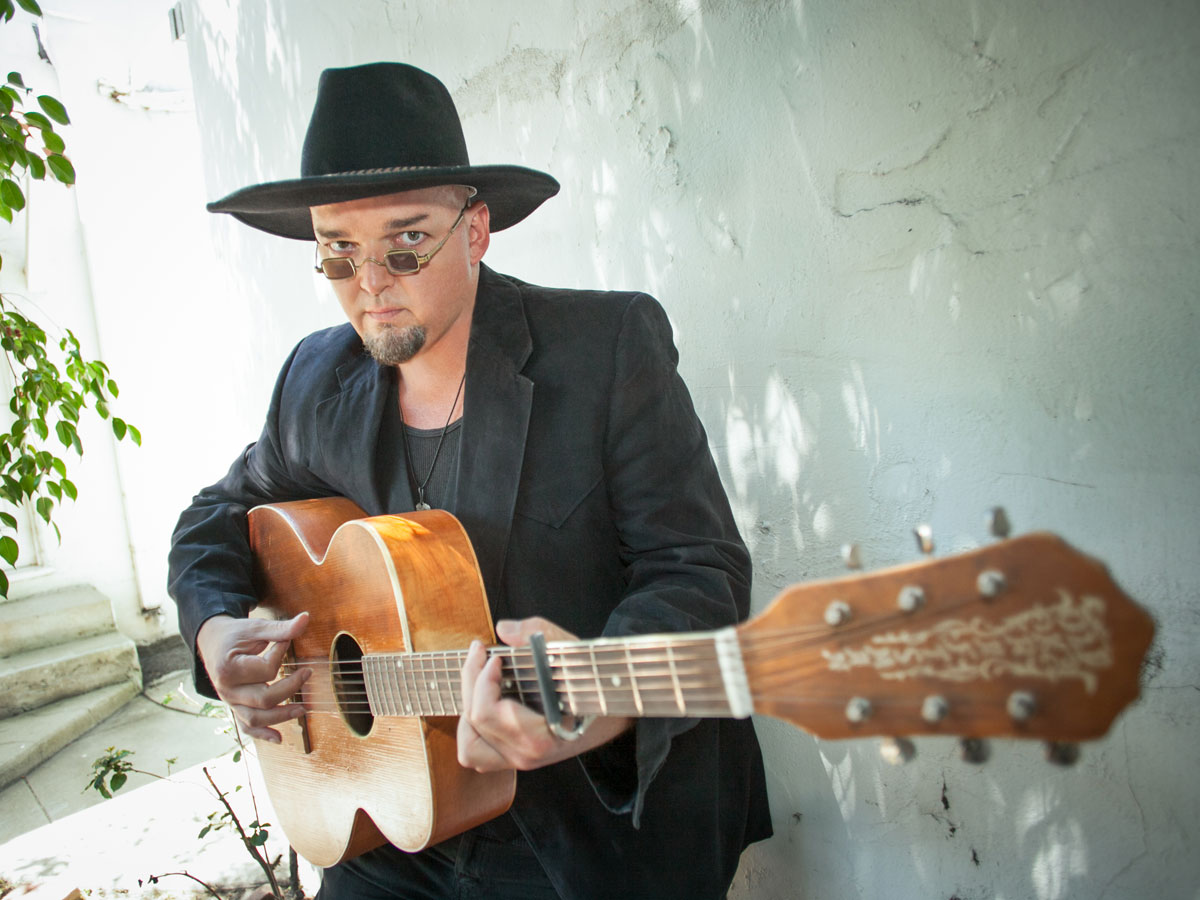
Introduction
You might not know the name Alain Johannes, but chances are you’ve already heard his otherworldly guitar playing.
"His CV reads like a who’s who of alternative rock: Them Crooked Vultures, Queens Of The Stone Age, Chris Cornell, Mark Lanegan... "
His CV reads like a who’s who of alternative rock: Them Crooked Vultures, Queens Of The Stone Age, Chris Cornell, Mark Lanegan... then there’s his work on Dave Grohl mega-movie ‘Sound City’, producing Jimmy Eat World and Brody Dalle, engineering Arctic Monkeys, not to mention releasing two hugely accomplished solo albums - one recorded almost entirely on a cigar box guitar - and critically acclaimed work with his own bands, Eleven and What Is This?.
Somehow, Alain managed to find time to talk to us about his high-flying career and reveal what’s next for the self-proclaimed ‘weirdo guitar solo guy’...
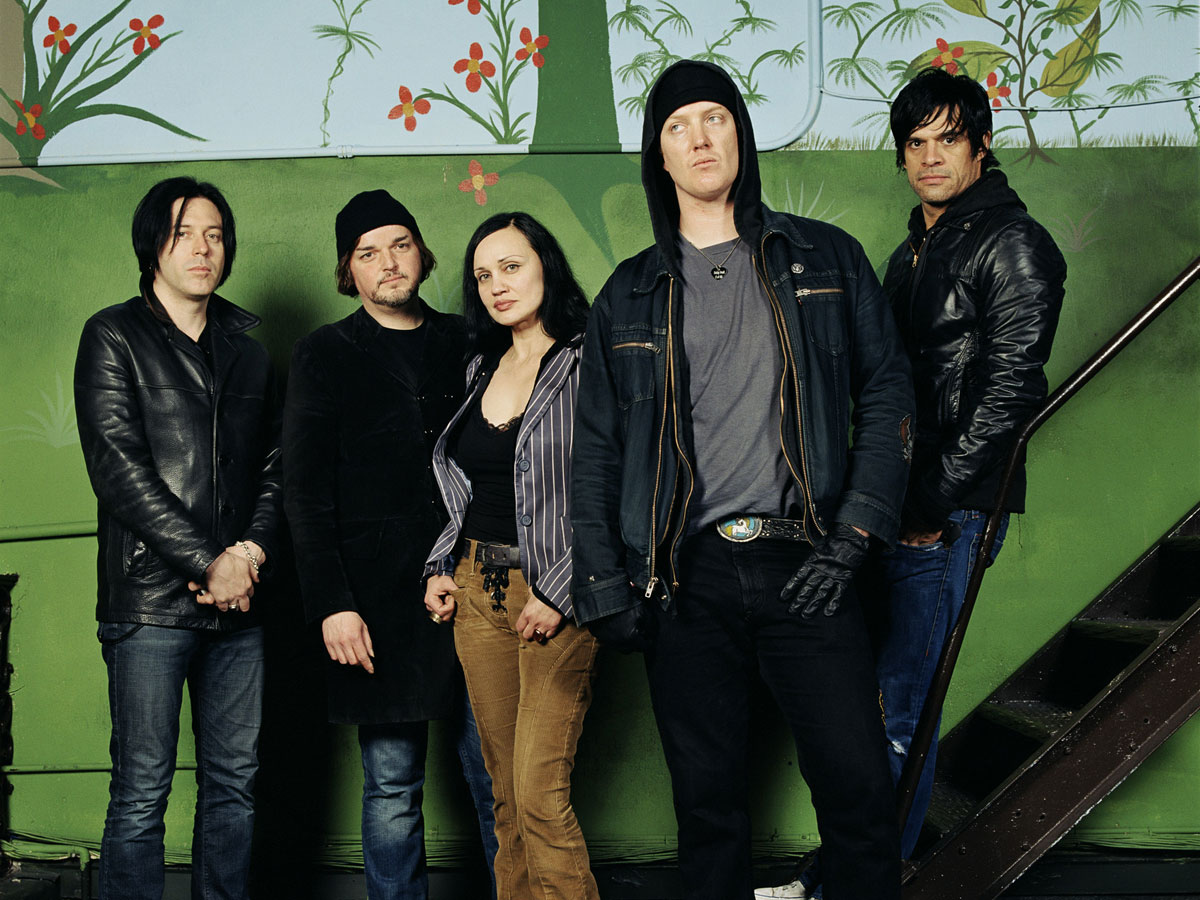
Lessons learned
"I grew up in nine countries and you learn new languages all the time, and that walks hand-in-hand with music; I just always used to like adapting and learning from the environment.
"Working with these people and becoming a part of Queens - they’re all influences in some way"
"In the early days, [What Is This?] was Hillel [Slovak, Red Hot Chili Peppers guitarist], Jack [Irons] and I, then we had Flea, and then after that, Eleven formed, and at that time, we met Soundgarden and Pearl Jam, made friends and started touring.
"Working with these people and becoming a part of Queens - they’re all influences in some way, being around people who are serious about their craft and passionate about it, and have great ideas. You get used to not over-thinking things, just trying to make sure you always have that freshness to the approach, to basically just have a great time and capture that."
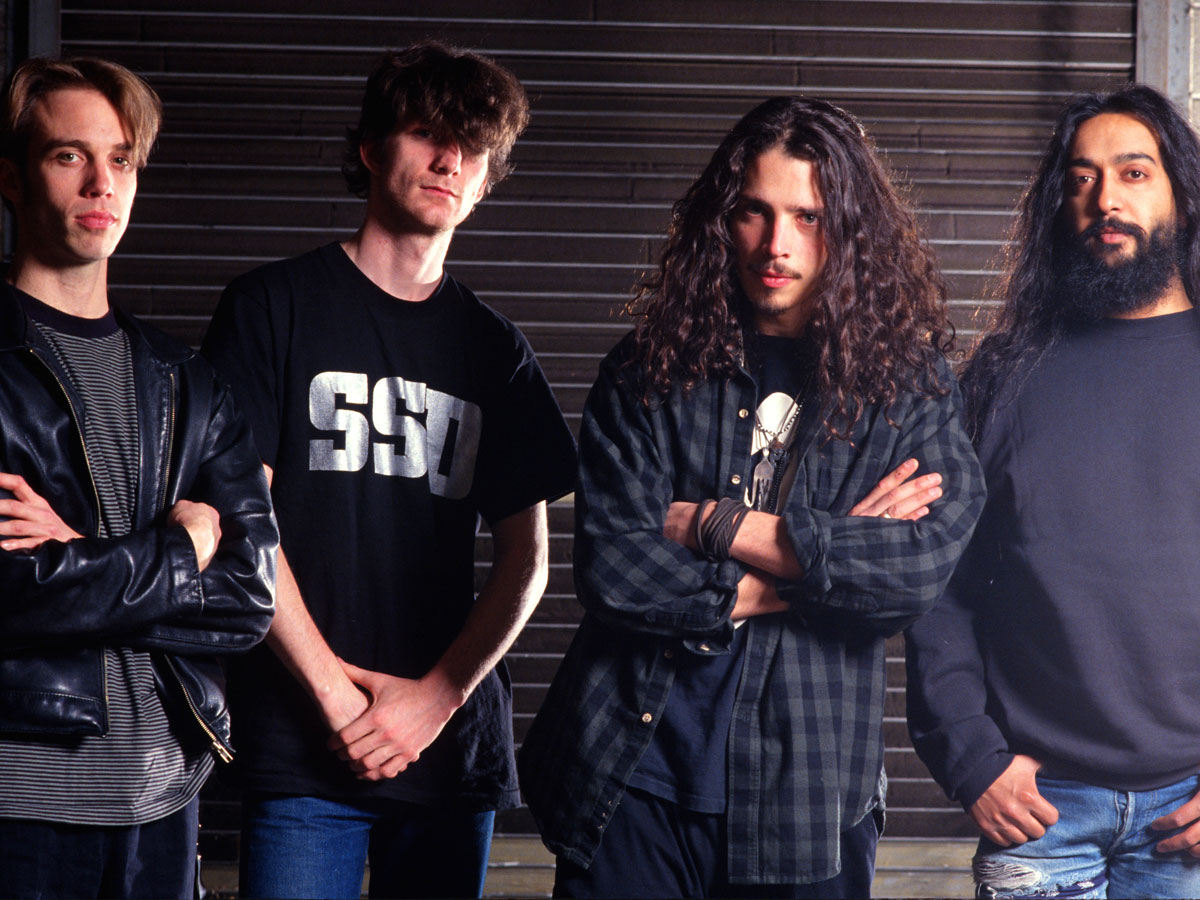
Famous friends
"In terms of being part of this extended family, that happened first with the Soundgarden boys, because they invited Eleven on tour many times, and then Natasha and I worked with Chris [Cornell] on his solo record, Euphoria Morning - we recorded, co-wrote, produced it, toured.
"I love Josh’s musicianship - to be able to communicate all those things at the same time, and be universal"
"But it was after meeting Josh [Homme] that it really started to expand with the Desert Sessions; that’s how I met PJ Harvey and Mark Lanegan, and then eventually Masters Of Reality and the Eagles Of Death Metal, all these people that I’ve worked with in recording then became friends.
"Obviously, there’s Brody [Dalle, Homme’s wife], too; I worked on her last two records, so we start with a friendship but that also involves musical resonance.
"[Josh] is a big catalyst for that, you know. The Desert Sessions are something that he makes happen. It has such a multi-dimensional aspect to it - you can just walk in, dance to it, musicians dig it, people that don’t delve that deeply into the more complex aspects of music dig it. It’s such a multi-dimensional band, which is great. I love Josh’s musicianship - to be able to communicate all those things at the same time, and be universal."
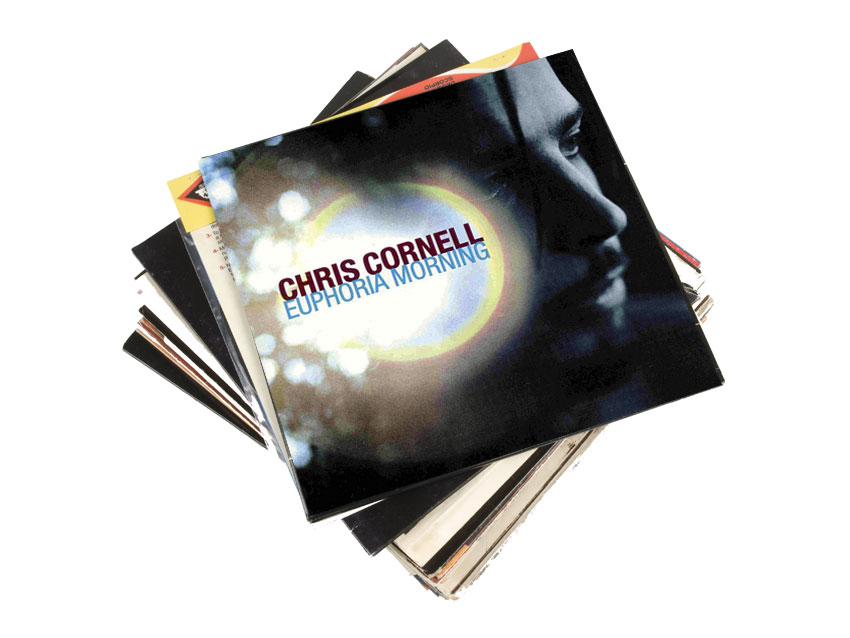
Play well with others
"It teaches you how to be assistive and be tasteful: what can you add to this? It’s been interesting a couple of times, like on the Euphoria Morning stuff - Chris played a lot of the guitar on the record, and I played a lot of the guitar on the record.
"Everybody has a very particular way of playing the guitar, and it becomes extremely difficult to be able to match that"
"Everybody has a very particular way, their own way, of playing the guitar, and it becomes extremely difficult to be able to match that because it’s not your natural feel. So, even though it might seem simple in terms of what it is - it’s all just strumming different chords - the particular way is so important to the song.
"It would take a second to adapt a different feel, and it eventually becomes your own. Live, Chris wasn’t playing guitar on that Euphoria Morning tour; I was playing the guitar, so one song in particular, Moonchild, it’s always constantly moving and arpeggioing - live, I would always look at the setlist and go, ‘Oh God, here it comes!’ Gotta keep the pre-show wine to a minimum, for sure!"
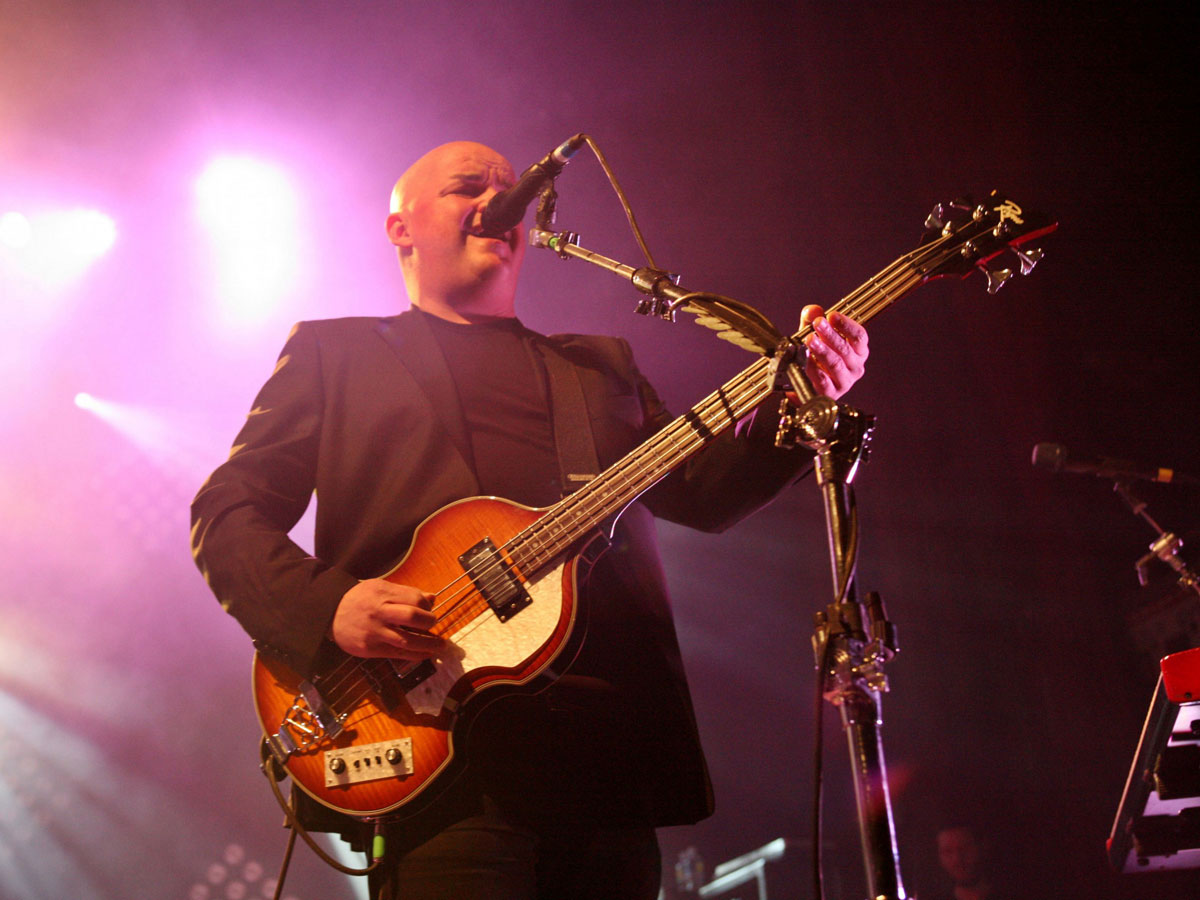
The fourth vulture
"After a while, you run out of places to pinch on your body. One second, I’m on stage with John Paul Jones - and I grew up with Led Zeppelin and looked up to him so much as an incredible musician, arranger and just badass in general.
"My guitar tech, goes, ‘Sir Paul [McCartney] is watching you like a hawk’"
"And the next thing you know, there I am on stage in London, and my guitar tech, Ally Christie, goes, ‘Sir Paul [McCartney] is watching you like a hawk’, and I’m like, ‘Oh God, don’t say that to me right now!’
"And then after the show, Paul McCartney stops me as I’m walking by, and he goes, ‘I don’t understand; it’s billed as three, but I see four - and what a mighty fourth you are!’ That’s a dream for me: growing up, I used to make my mum get me the singles as they were coming out. The Beatles were everything for me. And so there [Sir Paul] is, watching me and giving me kudos. It couldn’t have been more of a dream come true."
"I think some of our best shows definitely rival some of the best live music that’s ever happened, and I’m not just saying that because I was part of it. I’m just trying to be objective about it. There were a couple of moments where you just felt the power, and how easy it was for us to just tune in and transcend and just be in this incredible kind of a group mind. Moving like a single beast.
"Coming from, in some ways, very disparate vantage points, and yet at the same time everybody always having music as the primary reason why they exist; it’s the thing they love the most and communicate the clearest and the best in."
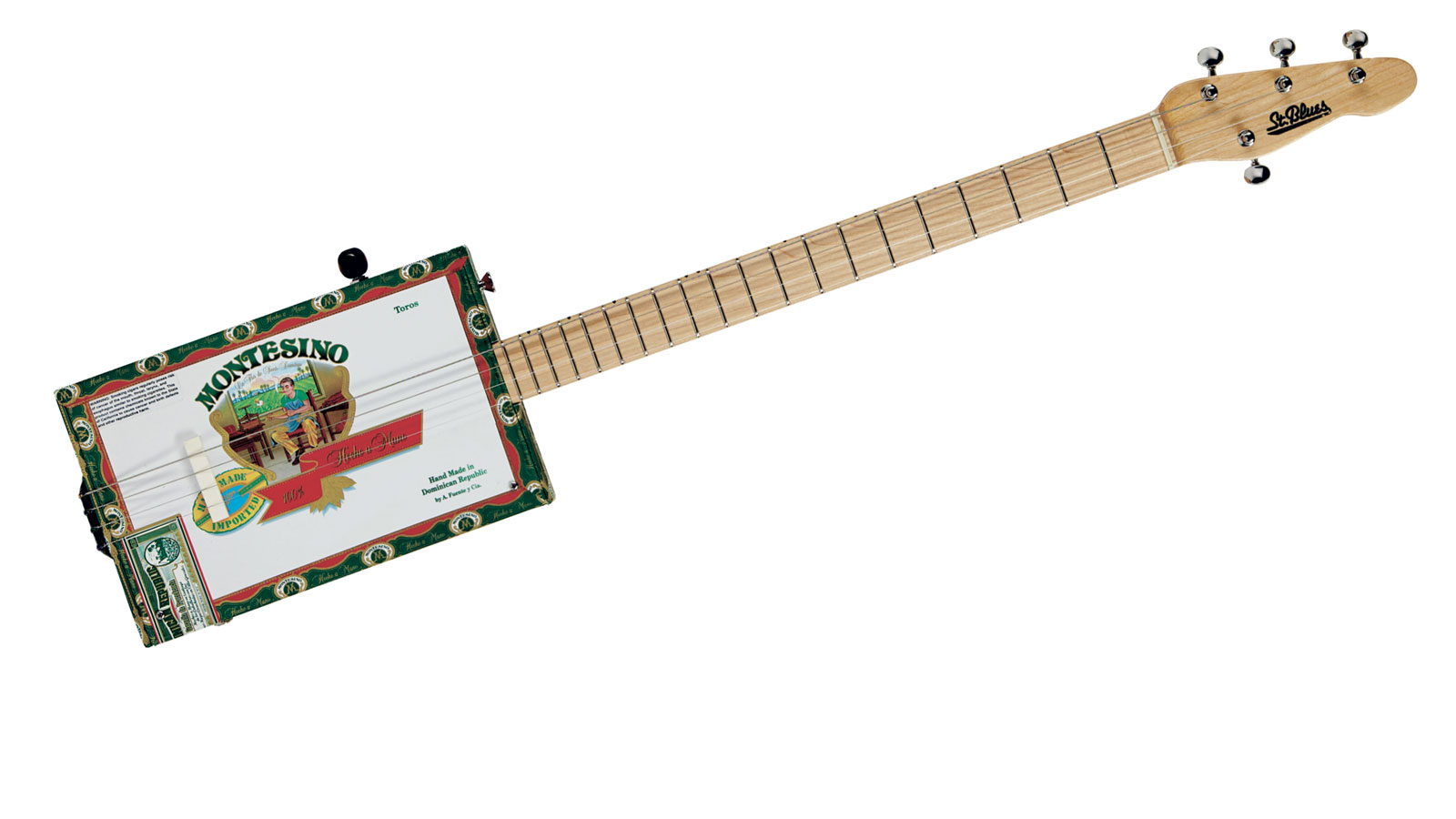
Cigar box of tricks
"I’d had the [cigar box] guitar for many years, even on Eleven’s last album, Howling Book [2003] - [luthier] Matty Baratto had made my first four-string one that I gave to Brody.
"The cigar box guitar was easy to carry, it sounded really full and amazing, and the songs flew out of it"
"Then I had an eight-string one, but when Natasha [Shneider, Alain’s partner in life and in Eleven] passed away, lots turned up: Josh had asked me to engineer the Arctic Monkeys record [Humbug] and be part of the Crooked Vultures recording, and then join the live band.
"So, I had that instrument with me, and on the surface, it got me started - it was easy to carry, it sounded really full and amazing, and the songs flew out of it. [Alain’s first solo album, Spark] wouldn’t have been the same if it wasn’t that guitar; there was something about the directness of the cigar box guitar and the way that it has a sound which matches other instruments - it can be very percussive like a flamenco guitar, so it almost has a folky, Eastern, exotic aspect, and yet it’s very much a blues instrument. It became the vehicle through which the songs could be expressed."
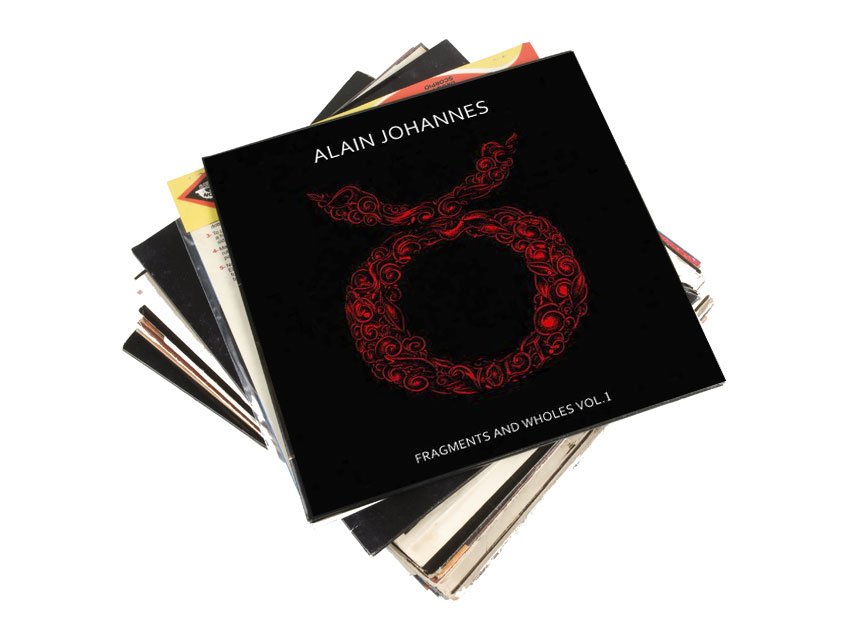
Writing his new album
"For Fragments And Wholes, Vol 1, I was taking from little improvisations that I posted on my Instagram; I’ve got maybe about 70 of them. Then, when I had a window, I would just pick one of the fragments and then just start finishing it.
"I wanted the process to be really fresh and really quick, and not to over-think anything"
"So, it was one song per day - anywhere between one and two hours to just hash it out in my mind, where I’d write the lyrics, figure out the instrumentation, then perform it, then go on a quick break and mix it when I get back, and then move onto the next one the next day. I wanted the process to be really fresh and really quick, and not to over-think anything."
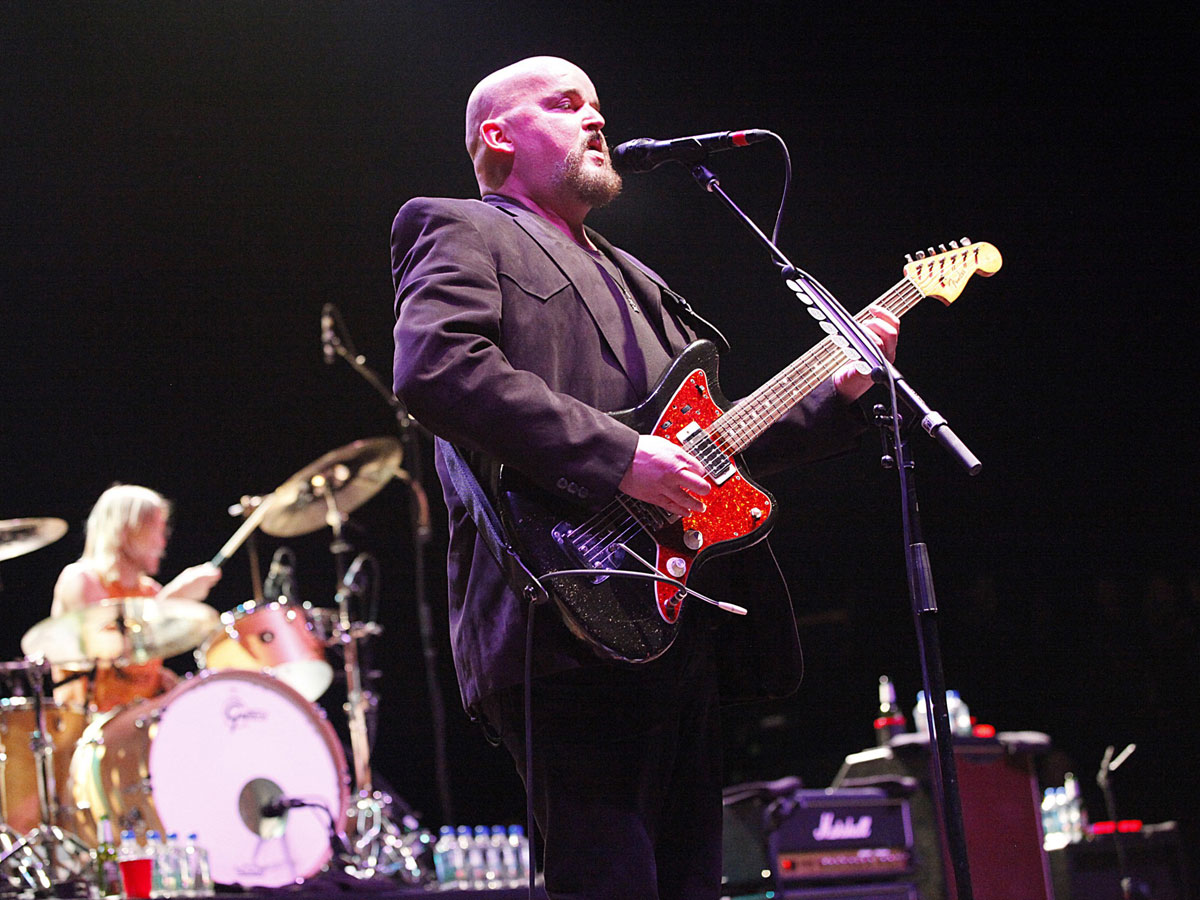
Go-to gear
"I still play my Jazzmaster that I’ve had since I was 16, which I used in Vultures, and used in What Is This? and Eleven - that’s my go-to. The factory stamp on it is my birthday and year, which I discovered later - so it was invariably going to end up in my hands!
"It still retains the Jazzmaster-y sound; but for my purposes, I need it to be a little bit heavier"
"I haven’t done any mods, except I stuck some old Gibson humbuckers in, and I used the old Jazzmaster pickup covers as the pickup mounts so that I wouldn’t have to rout or change anything. It still retains the Jazzmaster-y sound; but for my purposes, I need it to be a little bit heavier - and you know how it is with those Jazzmaster pickups: they sound incredible, but if the stage or lights are wired funny, you’re gonna get quite a racket going."
"I always go back to Fender amps, but lately I’ve had a Greedtone [JHI-100]; this guy [Greg Williamson] in Seattle makes them, and they’re absolutely brilliant. It’s super-open, very clean; the wiring is super-clean and high-end, and it’s very dynamic and reacts to your playing. I love that amp, so I’ve been using that the past few years a lot.
"In a pinch, if I’m going somewhere and I don’t have my amps with me, I’ll get a Twin and a Bassman, and be good to go."
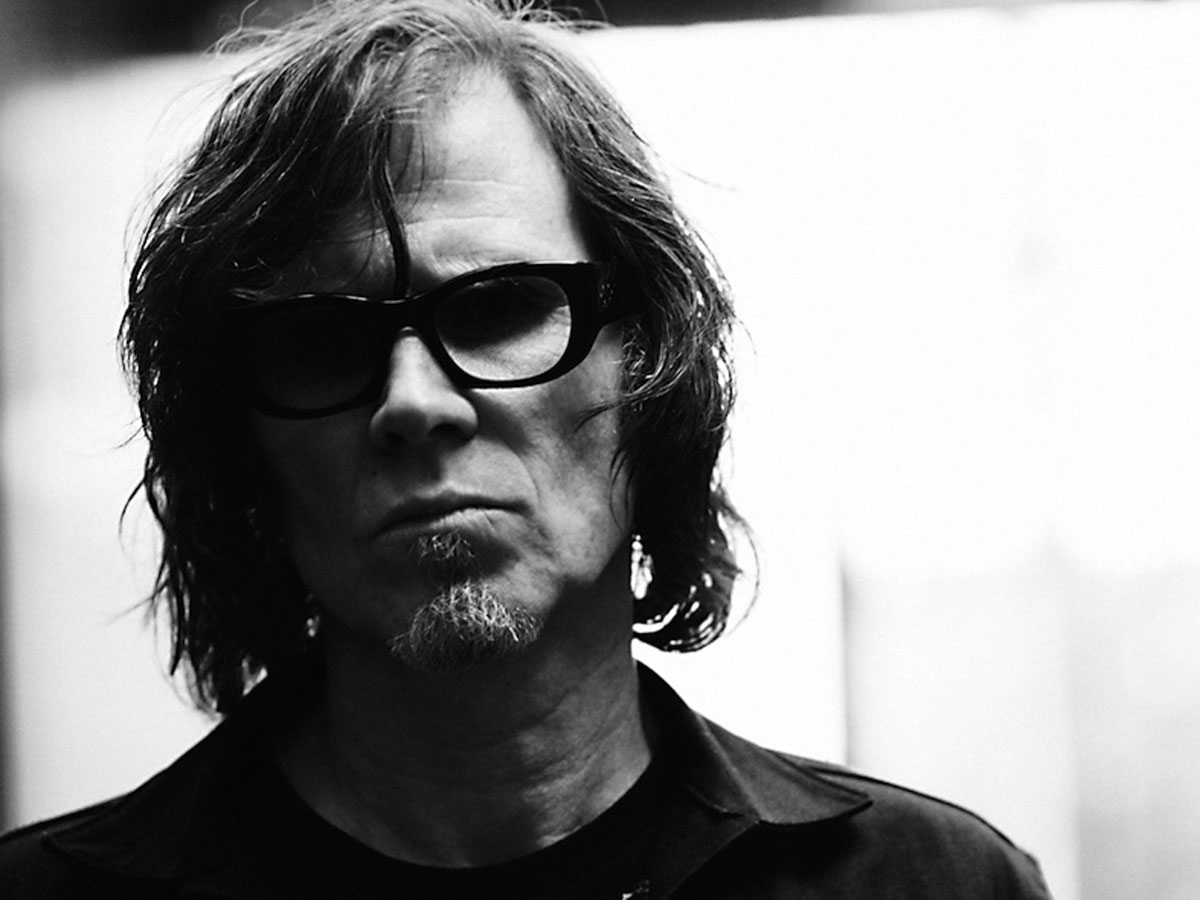
Making your mark
"Mark [Lanegan] likes to move fast. He comes with a song, and he plays it on acoustic and sings it, and he has a very clear idea of what he wants. And so he describes it to me, whether it’s directly or indirectly, and then we start recording the song.
"Our shorthand is on a very high level; when you understand each other, things don’t take that long"
"And somehow, about two or three hours into the process, sometimes less, the bed of the song is there, and then he sings it and he kills it, and then maybe it’s done or maybe it needs a couple of touches.
"Mark’s really helped me, because he’s pushed me to deliver in the moment. There’s a combination of what I imagine the song needs, and what he imagines it needs. Then, over the years, it’s getting closer and closer so our shorthand is on a very high level; when you understand each other, things don’t take that long."
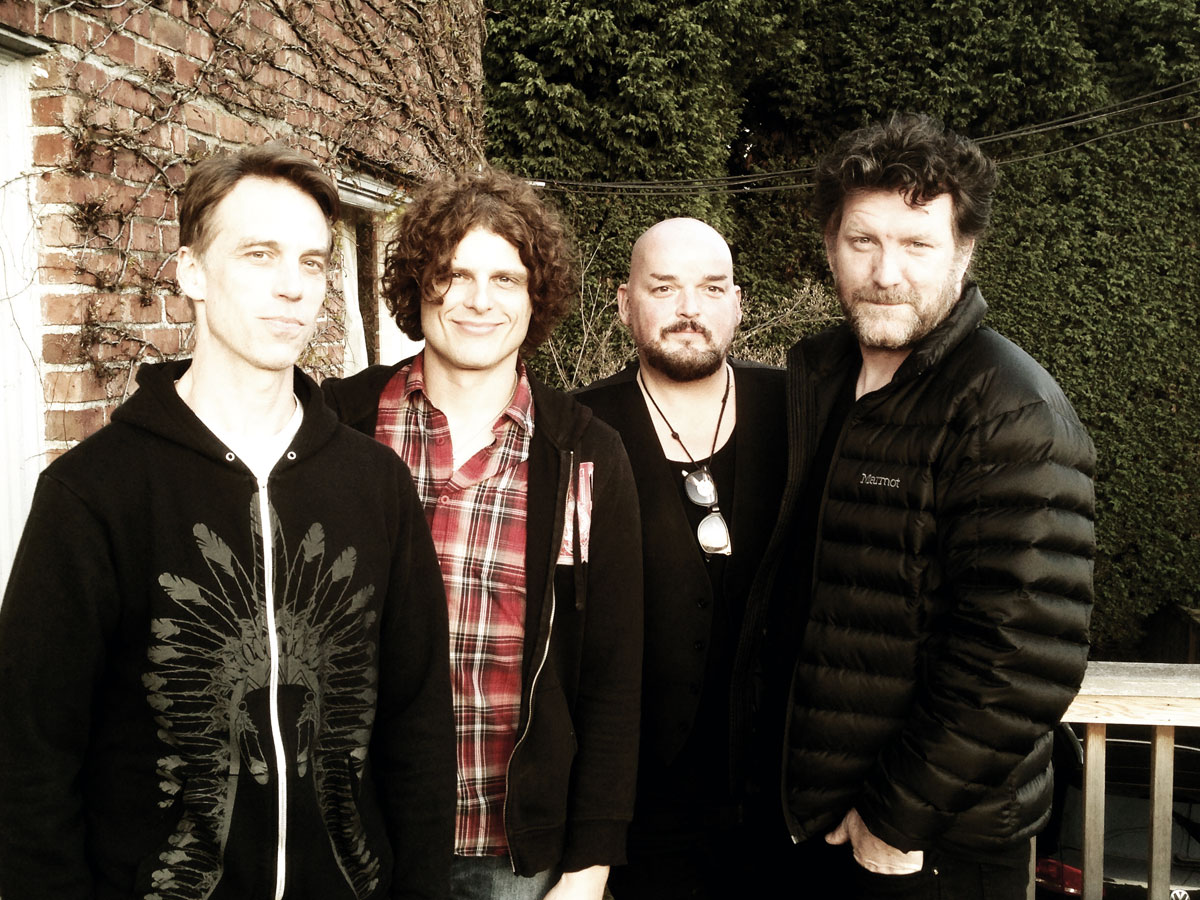
Who's next
"There’s this band that Matt Cameron, Ben Shepherd, Dimitri [Coats, Burning Brides] and I have. I sang on a bunch [of tracks], Dimitri sang, Lanegan’s on a tune, and then Chris [Cornell], hopefully, will sing. It has no name yet.
"I’d love to concentrate on putting out more music and not wait as long in between"
"I went to stay with Matt for two weeks in December 2008 after Natasha passed away, and that’s when we did the original sessions. Matt, Ben and I would go to the Pearl Jam space and we laid down 10 songs, half with vocals, half without. And then we finally got around everyone’s schedules to recording them last year, so now we’ve got 10 or 12, and we’re gonna get to finish it up and put it out this year."
"I’m thinking volume two [of Fragments And Wholes] will have a few more people involved: Chris, Lanegan, Josh, Brody - who knows? I’d love to concentrate on putting out more music and not wait as long in between.
"I’m toying with the idea of doing a live-ish bluesy-type record with just voice and resonator, too. I like that feeling of having a loose framework and then just improvising - I love just being on the edge of that."
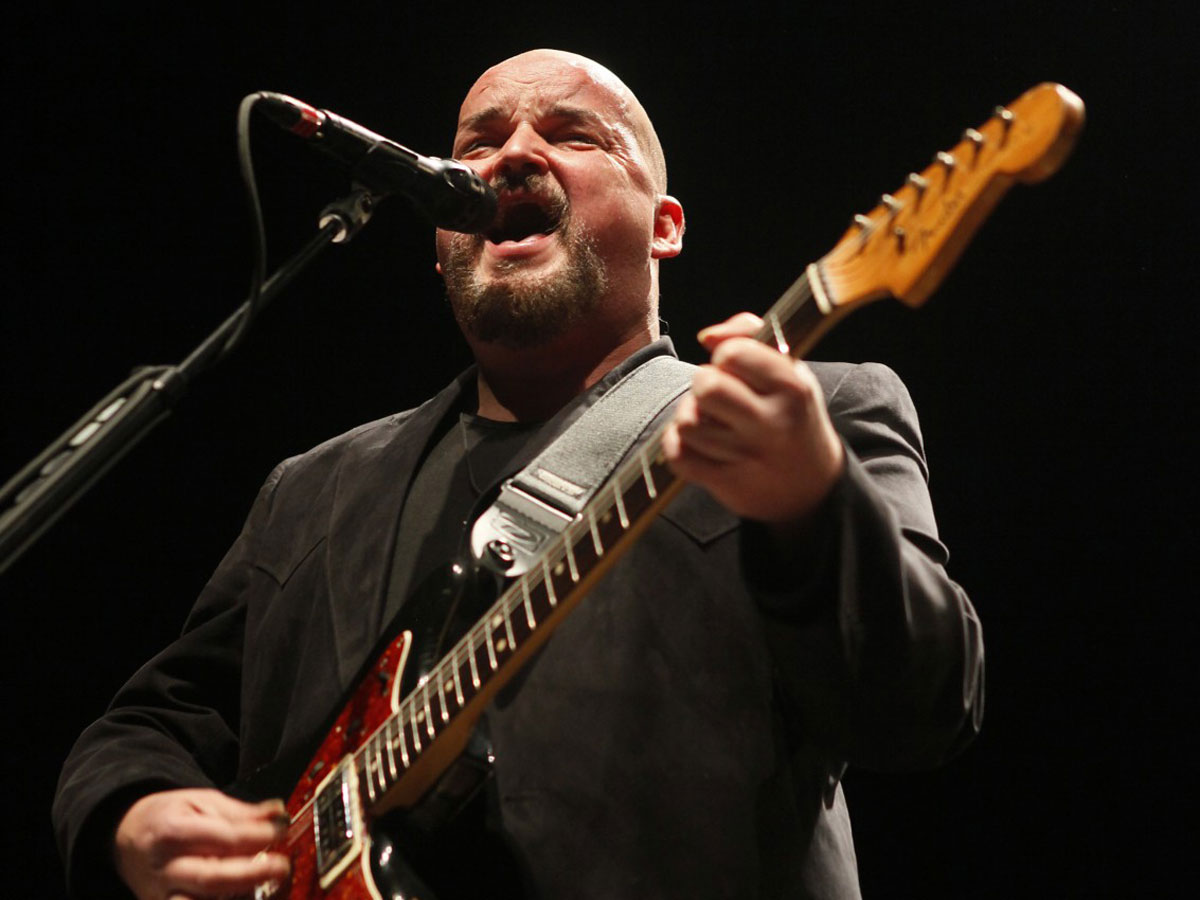
Weird Al
"There was a period in the 80s when I did a lot of weirdo solo guitar - if they couldn’t get Adrian Belew or Robert Fripp: ‘Why don’t you call Al? He’s here and he’s cheap!’ [laughs]
"There was a period in the 80s when I did a lot of weirdo solo guitar"
"Someone would have a dance remix or something of some track, and they’re like, ‘After the second chorus, I need something to come in and go ‘Woorp tic waarb brrrp dndndn!’ ‘Call Al; he can do it!’ and I’d go in and make $800 and do two takes and go home.
"Everything lands in my lap. I don’t really advertise; things just come my way, and if I think I can be of help or I can contribute in a positive manner then I’ll just pursue it. But for the most part, everything just kind of shows up you never know what can happen."
Alain Johannes’s new album, Fragments And Wholes, Vol 1, is out now.
Mike is Editor-in-Chief of GuitarWorld.com, in addition to being an offset fiend and recovering pedal addict. He has a master's degree in journalism, and has spent the past decade writing and editing for guitar publications including MusicRadar, Total Guitar and Guitarist, as well as a decade-and-a-half performing in bands of variable genre (and quality). In his free time, you'll find him making progressive instrumental rock under the nom de plume Maebe.


